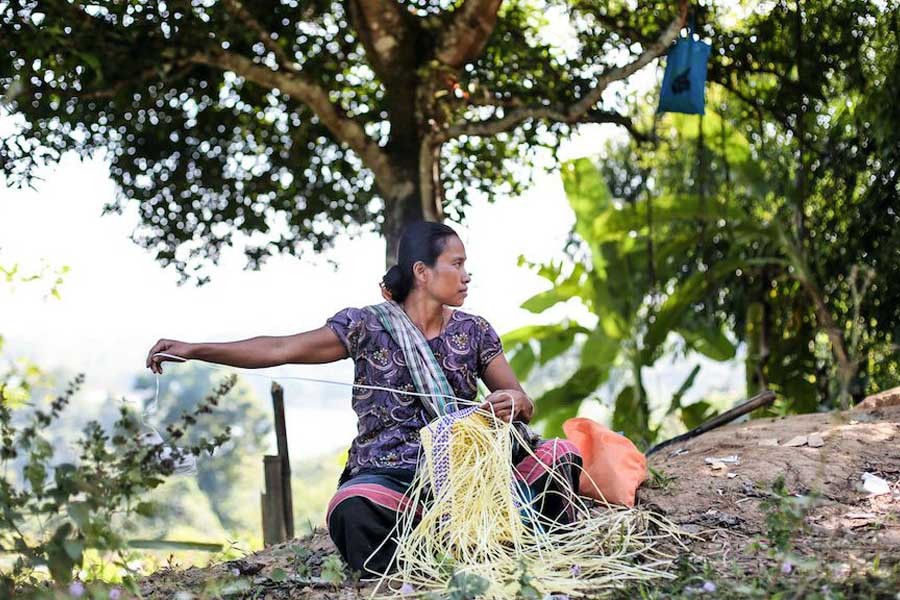
Published :
Updated :

Although the acronym SMEs (small and medium enterprises) is often defined and identified vaguely because of the diverse nature of small and medium businesses, one clear way of identifying them is by tracing them to their urban or rural ancestries. This, in other words, goes to suggest that there is a line - a segregation to be precise -- that tells them apart, and in that it is the rural SMEs which feel the brunt of segregated treatment.
While the overall SME sector is facing many problems, SMEs set up in the rural areas over the past decades are feeling the bite harder, especially on account of financing, among others. Newspaper reports say scheduled banks and non-bank financial institutions are providing no worthwhile support by way of financing the small rural entrepreneurs. The target set by the central bank for the public sector banks for loan disbursement to these units has only partly materialised. Reportedly, only 22.15 per cent of the total SME loans for rural entrepreneurs have been disbursed in FY18. Quoting central bank data, a local daily reports that during the year, out of the total Tk 1,419.36 billion disbursed by banks and the NBFIs under the Bangladesh Bank's SME credit programme, the share of rural SMEs was Tk 314.45 billion.
True, urban SMEs, mostly bigger in size and having relatively better credit worthiness are likely to get a bigger share of the loans. Nevertheless, the amount disbursed last year does reflect that the small rural units are not provided with the support they deserve. The five state-owned commercial banks - Sonali, Janata, Agrani, Rupali and BASIC - which should have led financing these units are, in reality, far behind the local private commercial banks.
The overall loan disbursement to the SME sector has reportedly experienced a surge, a considerable leap by more than 22 per cent. That is to say, most loans got disbursed to credit-worthy SMEs located in the urban areas. This conversely explains the utterly disproportionate manner in which SME funding is working in the country. One of the factors underlying the poor level of loan disbursement to these units is that most commercial banks and NBFIs do not consider them credit-worthy and tend to prefer traders as more reliable debtors. But the reality remains, as pointed out by noted economists, dishing out excessive loans to traders makes little or no economic sense as it does not contribute much to productivity nor does it help create job opportunities. Besides, one feels there might be chances of fund diversion to other sectors as well.
Reports quoting Bangladesh Bank officials say that a number of banks and NBFIs are in no mood at all to disburse loans to the rural SMEs. The law, too, does not bind them with any obligation to do so. In other words, it's just the bank-client relationship, the traditional norm in banking transactions that determines loan disbursement to these small entities. As a result, the cluster-oriented SME units in rural areas are not in a position to leave any noticeably positive impact on the economy.
Admittedly, if the government's credit facilities do not go in the way of promoting income generation and employment, especially in the rural areas, rise in loan disbursement makes little sense for the simple reason that traders can avail of loans from commercial banks on various counts to run their business, which is not the case with SMEs, particularly rural SMEs.
Concerned quarters feel that the SME loan policy should be better directed in that the focus should clearly be on how best to ease out capital constraints of small and medium manufacturers in rural locations. There is thus the need for specific guideline in respect of SME loan disbursement which, among others, should provide for strong monitoring besides setting out disbursement ratio between traders and manufacturers.
The country is experiencing a growth of small enterprises in rural Bangladesh in a variety of business segments. Both farm and non-farm based SMEs are sprouting, mostly without well-planned supervision by any government agency. While poultry, dairy, fisheries occupy a considerable space among the rural SMEs, others ranging across small-scale manufacturing to trading are also looking for the right route to grow and sustain. If these units, with many teething problems, are provided with some relief from their perennial capital constraint, it is highly likely that they can play a role of multiplier significance to the local communities. The budget proposal for the fiscal year 2019-20 provides for an allocation of Tk 10 billion as a start-up fund for new business enterprises. Although the fund is not big enough to cater to the start-up requirements of all new entrepreneurs, slicing a portion of it for the SMEs in rural areas may be a step in the right direction.


 For all latest news, follow The Financial Express Google News channel.
For all latest news, follow The Financial Express Google News channel.